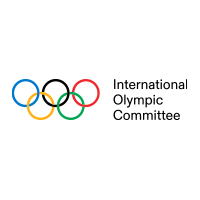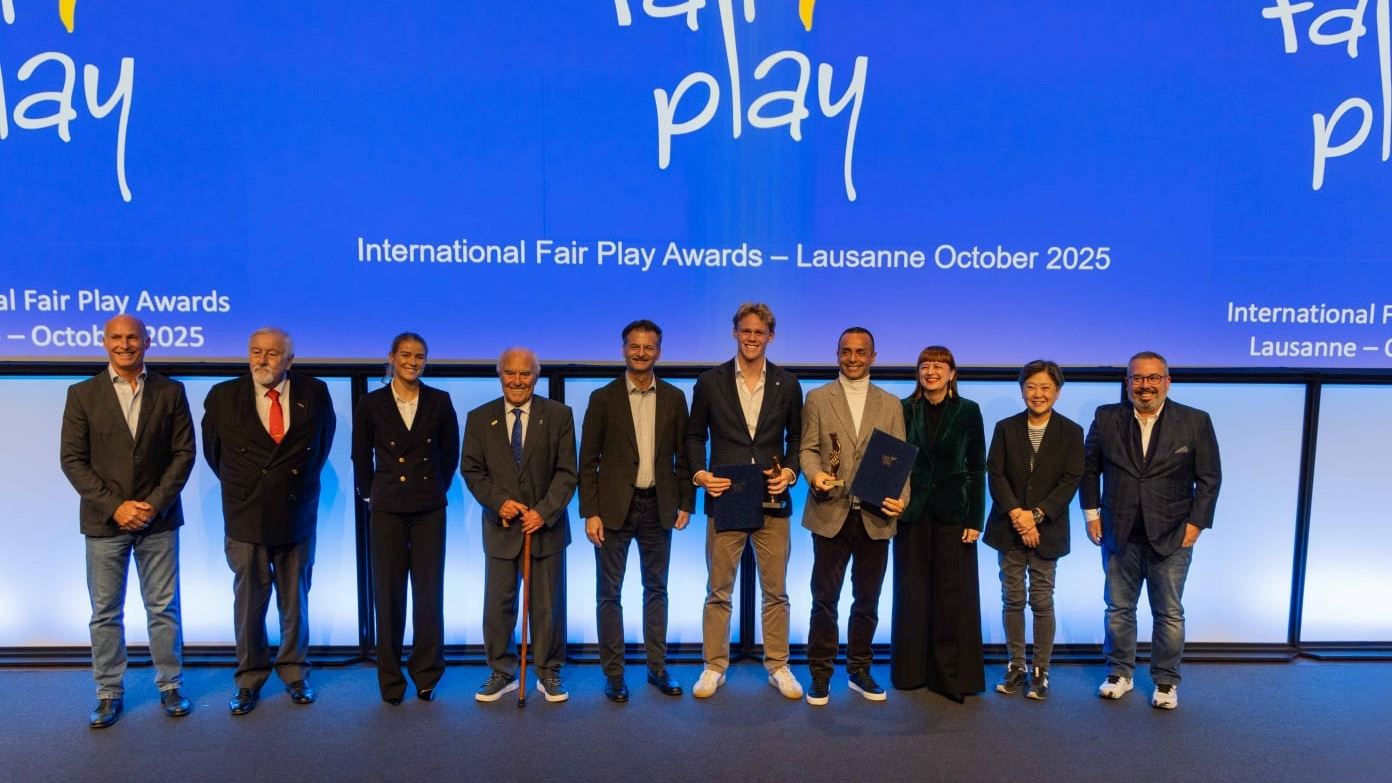13 October 2025 - Decathlete Sander Skotheim, the German Olympic Sports Confederation (DOSB) and its national rowing federation, and DJ Antonio Rojas have received Fair Play Awards for their inspiring gestures of friendship, sportsmanship and solidarity during the Paris 2024 Olympic Games.
This year’s Fair Play Awards were presented at a ceremony held at the Olympic Museum in Lausanne on 12 October, the opening day of Olympic Week, a yearly event where over 8,000 children get the chance to discover free and exciting activities combining sport and culture. Created and chosen by the International Fair Play Committee (CIFP), an organisation recognised by the International Olympic Committee (IOC), the awards acknowledge powerful acts of solidarity and fair play at the Olympic Games – both on and off the field of play.
Sport is nothing without sportsmanship. The winners of the International Fair Play Awards embody the values of fair play and solidarity, two principles that lie at the very heart of Olympic competition. Their actions remind us that the Olympic Games are more than just a showcase of athletic greatness. They are a powerful force for good and have a unique ability to inspire a better world through sport, grounded in the Olympic values of respect, friendship and excellence.

Angelita Teo, Olympic Museum Director
Meet the three award-winners
This year’s Fair Play Awards were presented to:
Sander Skotheim, who continued competing in the men’s decathlon at the Paris 2024 Olympic Games despite failing to clear a height and register a score in the pole vault. By staying in the competition even after his own medal hopes had gone, the Norwegian decathlete was able to support his compatriot and sometime rival Markus Rooth in the final discipline, the 1,500m, helping Rooth to take gold with a new national record.
The German Olympic Sports Confederation (DOSB) and its national rowing federation, which offered one of their boats to single-sculls rower Yauheni Zalaty (an Individual Neutral Athlete from Belarus) after Zalaty’s own boat was held up in customs. The offer came even though Zalaty was considered to be one of the main rivals for Germany’s own Oliver Zeidler – and so it proved, with Zeidler winning gold and Zalaty claiming silver.
Antonio “Tony” Rojas, the DJ at the Eiffel Tower Stadium during Paris 2024, who helped to defuse a row between Ana Patrícia Silva Ramos of Brazil and Brandie Wilkerson of Canada during the final of the women’s beach volleyball competition by playing John Lennon’s classic song, Imagine – a choice that both players appreciated with a smile.
Les moments vécus lors de Paris 2024 montrent que le fair-play dépasse le simple idéal ; il s’agit d’une énergie tangible et puissante qui façonne le sport. Qu'il s'agisse d'un acte de sacrifice, d'un moment de paix porté par la musique ou d'une simple main tendue à un concurrent, ces personnes nous rappellent que le caractère est, en définitive, la plus noble des médailles.
- Sunil Sabharwal, Président du CIFP
The Fair Play Awards
The Fair Play Awards – in conjunction with the Olympic Games – were launched after the Beijing 2008 Olympic Games by the International Fair Play Committee (CIFP), an organisation established in 1963 to promote the practice of fair play principles in sport – fully aligned with the Olympic Charter, which sets out how “the Olympic spirit requires mutual understanding with a spirit of friendship, solidarity and fair play.”
The CIFP first awarded fair play trophies exactly 60 years ago in 1965, when the inaugural Pierre de Coubertin Fair Play Trophy – named after the founder of the Olympic Movement – was awarded to Eugenio Monti. Competing at the Innsbruck 1964 Olympic Winter Games, the Italian bobsleigh star provided his British rivals with a replacement for a broken bolt on their sled, allowing them to take gold. The equivalent award for Paris 2024 was given last year to Canadian gymnast Ellie Black.
The announcement of the Fair Play Awards 2025 follows the inaugural World Fair Play Day, which took place earlier this year on 19 May. The United Nations (UN) General Assembly chose this day to promote sport practised in the spirit of friendship, solidarity, tolerance, inclusion and non-discrimination.

